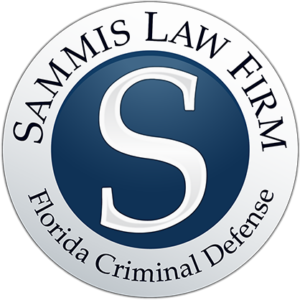Disorderly Intoxication
Florida law provides that disorderly intoxication is a misdemeanor of the second degree punishable by up to 60 days in jail and a $500 fine.
In some cases, the prosecutor will seek up to six (6) months of probation which is also allowed as a punishment under the statute.
The statute also provides that any person who has been convicted of this offense three times in the preceding 12 months shall be deemed a habitual offender and may be committed to an appropriate treatment center for a period of up to 60 days.
Crimes for disorderly conduct do not necessarily have to involve intoxication from alcohol or impairment from drugs.
In some cases, being naked in public can be considered disorderly conduct. Examples of this type of disorderly conduct might include:
- walking around naked or with sexual organs exposed (although not involving any lewd or lascivious purpose);
- urinating in a public parking lot or another public place; or
- sunbathing naked on a beach not designated as a nude beach.
The disorderly conduct statute provides in pertinent part: “Whoever commits such acts as are of a nature to corrupt the public morals, or outrage the sense of public decency … shall be guilty of a misdemeanor of the second degree….”.
When the facts of the case show that the defendant was naked in public without a lewd or lascivious intent, the prosecutor might charge the crime as a second-degree misdemeanor for disorderly conduct under section 877.03, Florida Statutes.
In Moffett v. State, 340 So.2d 1155 (Fla.1977), for example, the state supreme court affirmed the convictions of two women under section 877.03 for topless sunbathing on a public beach. The courts have also noted that the act of urinating in a public parking lot could constitute disorderly conduct.
Being naked in public with a lewd or lascivious intent to expose or exhibit a sexual organ constitutes the crime of indecent exposure under Section 800.003 (often called lewd and lascivious exposure).
Lawyer for Disorderly Intoxication in Tampa, FL
Whether you were formally arrested or released at the scene with a notice to appear, disorderly intoxication is a criminal offense with criminal penalties.
In Hillsborough County, FL, the HSCO inmate arrest details list the offense as DISORDERLY INTOXICATION (MISC0018).
The five attorneys at Sammis Law Firm represent clients charged with this offense throughout the greater Tampa Bay area including Tampa and Plant City in Hillsborough County, FL.
After an arrest for disorderly intoxication (often called public intoxication, disorderly conduct, or disturbing the peace) contact the attorneys at Sammis Law Firm.
We provide a free and confidential consultation so that you can discuss the facts of the case with an attorney.
Contact us to discuss your case and the best defense for fighting the charges.
Call 813-250-0500 today.
Florida’s Standard Jury Instructions for Disorderly Intoxication
The standard jury instruction for disorderly intoxication under Florida Statute Section 856.011 is contained in Section 29.1. These instructions were approved by the Florida Supreme Court in 1981.
In order to prove the crime of Disorderly Intoxication, the prosecutor with the State Attorney’s Office must prove the following two elements beyond a reasonable doubt:
- The defendant was intoxicated; and
- The defendant endangered the safety of another person or property.
Alternatively, the prosecutor can provide that:
- The defendant was intoxicated or drank any alcoholic beverage in a public place or in or upon a public conveyance; and
- The defendant caused a public disturbance.
Definitions in Florida’s Disorderly Intoxication Statute
Under Florida law, the term “intoxication” means “more than merely being under the influence of an alcoholic beverage.”
Instead, the term intoxication means “that the defendant must have been so affected from the drinking of an alcoholic beverage as to have lost or been deprived of the normal control of either [his] [her] body or [his] [her] mental faculties, or both. Intoxication is synonymous with ‘drunk.'”
The standard jury instructions provide that the “defendant’s admission that [he] [she] drank an alcoholic beverage is not sufficient by itself to prove beyond a reasonable doubt that [he] [she] was under the influence of an alcoholic beverage but this admission may be taken into consideration along with other evidence.”
Comparison Between Disorderly Intoxication and Disorderly Conduct
Similar to the disorderly intoxication statute, the disorderly conduct statute prohibits conduct that has some effect on the public. § 877.03, Fla. Stat. (2016) provides:
“Whoever commits such acts as are of a nature to corrupt the public morals, or outrage the sense of public decency, or affect the peace and quiet of persons who may witness them, or engages in brawling or fighting, or engages in such conduct as to constitute a breach of the peace or disorderly conduct, shall be guilty of a misdemeanor of the second degree[.]”
Finding an Attorney in Tampa for Disorderly Intoxication
If you were charged with or arrested for disorderly intoxication under Florida Statute Section 856.011 or a related criminal offense, then contact an experienced criminal defense attorney at the Sammis Law Firm.
With offices conveniently located in Tampa, Hillsborough County, FL, we can begin your defense today.
We also represent clients for other alcohol-related crimes such as DUI, minor in possession of alcohol, and under-aged 21 drinking of alcoholic beverages.
Call (813) 250-0500 for a free and confidential consultation.
This article was last updated on Friday, January 20, 2023.















